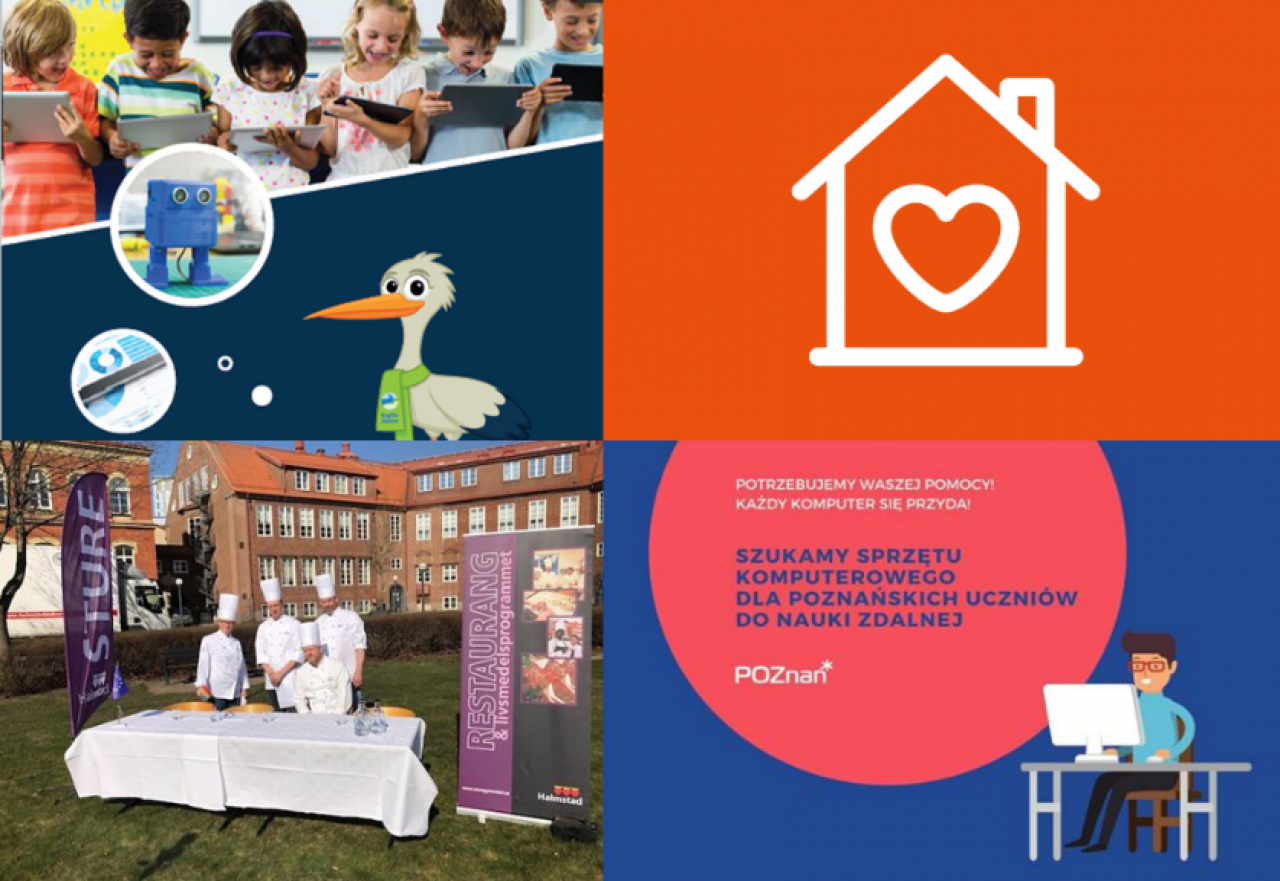
The Coronavirus health and social crisis is hitting hard our cities. Public health systems are put under enormous strain. Other welfare areas, such as Education, have come immediately afterwards, due to the containment measures. The situation imposed by COVID-19 has led educational centres to move their classrooms to each of the students’ houses. As well as the teachers now transfer knowledge through the screens.
Education systems have had to respond to the work-from-home situation almost overnight, and this has evidenced that not all schools, teaching staff and students were prepared to cope with this change. The unprecedented situation has forced educating cities to find new ways to continue learning and teaching from home, adapting and training in record times.
With the schools closing, technological and social measures have been rapidly enabled to assist children and young students to keep up with their learning activity but also to contribute to ease the confinement period as much as possible.
Access to connectivity and providing devices to all students; ensuring school meals for children in families who heavily relied on them, or offering educational and leisure activities through social media so parents can keep their children active at home, are but some of the solutions that schools, municipalities and governments are putting in place.
Let’s learn a little bit more about the great initiatives developed by ON BOARD cities!
VILADECANS
From Viladecans, as an educating city, educational content addressed to children and families has been disseminated daily through the City Council website: School at home. This initiative has been launched by the Department of Education in tight collaboration with the Communication Department together with the Fundació Ciutat de Viladecans and a number of City educational professionals who have contributed with activity proposals. These educational resources are for kids from 0 to 12 years old and the topics of these resources are way too different, you’ll be able to find maths activities, music, history, sports, mindfulness, experiments or even cooking recipes. It also includes advice, resources and tips for families with children and young with functional diversity and special needs.
The municipality is also contributing with the Regional Government to provide devices and internet connection to all students so they can follow the lessons online.
POZNAN
Not every child has access to computers at home and can take active part in distance education. “Every computer will be useful” is an action provided by Poznan City Hall to equip with computers those students who doesn’t have one at home. Schools in Poznan have been closed since March 11th and the City Hall has already financed over 300 notebooks for schools, but more equipment is needed. That is why they are still encouraging companies, institutions and individuals to provide IT equipment to schools free of charge for the neediest students. Luckily, many of them have responded quickly donating over 170 notebooks, computers and other material until the moment.
Apart from the material, not all students can use, understand and do their homework on their own. And not all parents have time or skills to help their children. This is why Poznan City –together with some volunteers coordinated by universities and foundations- has also given access to tutoring for free provided by teachers or high school students.
HALMSTAD
At Sturegymnasiet Highschool in Halmstad, the municipality delivers grocery baskets to the cooking students. Their task is to record and prepare meals with the groceries delivered home, which are then supplied to people in particular need.
Another educational initiative has been put in place with a survey sent to highschool pupils to know their opinion on how education has been so far, after high schools and universities have been teaching over the net for almost a month. Questions such as: accessibility and contact with the teachers/mentors or classmates; what has worked better/worse compared to regular teaching; have you received enough support from the school; or is there something special that the municipal politician should consider future decisions regarding the school, based on your experience of distance education; intend to gather the opinion of students during this distance leaning period.
TALLINN
Remote learning poses hurdles for some students. In Tallinn, even if the schools are closed, there are some exceptions. In the case of those ones that have difficulties learning from the distance and are a loosing track, or students with special needs, schools are allowed to call these students with specific difficulties to the school with a maximum of 2-3 students per classroom.
ALBERGARIA
The Municipality of Albergaria-a-Velha offers all students from the Primary School and their teachers, access to the Escola Virtual (virtual school). This was one of the solutions found to face the closed schools and the necessity of continuing teaching.
Also the Municipal Library has adapted some of its activities in order to continue developing them (reading challenges, online visits to exhibitions, virtual talks with writers from the city…).
In order to face the lack of computer material of some students these days, the Municipality has created a Municipal Bank of Digital Resources, made up of donations from the community of unused equipment.
